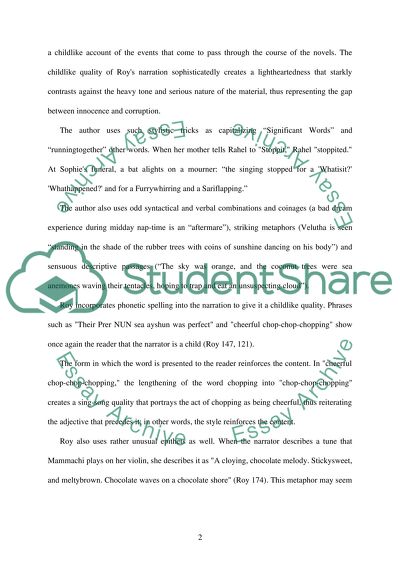Cite this document
(“Book Review. The God of Small Things by Arundhati Roy Report/Review”, n.d.)
Book Review. The God of Small Things by Arundhati Roy Report/Review. Retrieved from https://studentshare.org/literature/1515776-book-review-the-god-of-small-things-by-arundhati-roy
Book Review. The God of Small Things by Arundhati Roy Report/Review. Retrieved from https://studentshare.org/literature/1515776-book-review-the-god-of-small-things-by-arundhati-roy
(Book Review. The God of Small Things by Arundhati Roy Report/Review)
Book Review. The God of Small Things by Arundhati Roy Report/Review. https://studentshare.org/literature/1515776-book-review-the-god-of-small-things-by-arundhati-roy.
Book Review. The God of Small Things by Arundhati Roy Report/Review. https://studentshare.org/literature/1515776-book-review-the-god-of-small-things-by-arundhati-roy.
“Book Review. The God of Small Things by Arundhati Roy Report/Review”, n.d. https://studentshare.org/literature/1515776-book-review-the-god-of-small-things-by-arundhati-roy.


